
Chem Catalysis
Scope & Guideline
Connecting researchers to the pulse of catalysis advancements.
Introduction
Aims and Scopes
- Catalytic Mechanisms and Pathways:
Research exploring the fundamental mechanisms of catalytic reactions, including detailed studies on reaction pathways, intermediate species, and the impact of various conditions on catalytic efficiency. - Electrocatalysis and Photocatalysis:
Investigation into electrocatalytic and photocatalytic processes, focusing on the development of materials and systems for energy conversion and environmental remediation, such as CO2 reduction and water splitting. - Biocatalysis and Synthetic Biology:
Studies that leverage enzymes and biological systems for catalysis, aiming to enhance the efficiency and sustainability of chemical synthesis through biocatalytic approaches. - Materials Design and Engineering:
Research dedicated to the design and synthesis of novel catalytic materials, including metal-organic frameworks, single-atom catalysts, and bimetallic systems, with specific focus on optimizing their performance for various reactions. - Machine Learning and Computational Catalysis:
Utilizing computational methods and machine learning techniques to predict catalytic behavior, optimize catalyst design, and analyze complex reaction networks. - Sustainable and Green Chemistry:
Focus on developing catalytic processes that minimize environmental impact, including waste reduction, energy efficiency, and the utilization of renewable resources.
Trending and Emerging
- Sustainable Catalysis and Circular Economy:
A growing emphasis on sustainable practices in catalysis, including the development of processes that promote recycling and valorization of waste materials, such as plastics and biomass. - Machine Learning in Catalysis:
The application of machine learning techniques to predict catalytic performance, optimize reaction conditions, and design new catalysts is rapidly gaining attention, reflecting the integration of computational methods into experimental catalysis. - Electrocatalysis for Energy Conversion:
Research focused on electrocatalytic processes for energy conversion, particularly in the context of renewable energy sources, CO2 reduction, and hydrogen production, is becoming increasingly prominent. - Photocatalytic Applications:
Significant interest in photocatalysis, particularly for environmental applications such as pollutant degradation and hydrogen production from water, is emerging as a key area of research. - Single-Atom and Bimetallic Catalysis:
There is a notable trend toward the exploration of single-atom and bimetallic catalysts, which offer enhanced activity and selectivity due to their unique electronic properties and structural characteristics. - Biocatalysis and Enzyme Engineering:
Increasing interest in the engineering of enzymes for specific catalytic functions and the application of biocatalysis for sustainable synthesis is a growing theme in the journal.
Declining or Waning
- Traditional Homogeneous Catalysis:
Research related to traditional homogeneous catalytic systems has become less frequent as the field shifts towards heterogeneous and more sustainable catalytic processes. - Conventional Metal Catalysts:
There is a noticeable reduction in studies focusing solely on conventional metal catalysts without innovative modifications or the incorporation of new materials and technologies. - Basic Reaction Optimization Studies:
Simplistic studies aimed at optimizing known catalytic reactions without novel insights or advancements are becoming less prevalent, as the journal seeks more innovative and transformative research. - Single Reaction Focus:
Papers that concentrate on a single catalytic reaction without broader implications or connections to larger catalytic themes are declining in favor of more integrative and multi-faceted studies.
Similar Journals
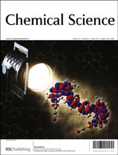
Chemical Science
Delivering Cutting-Edge Chemistry to the WorldChemical Science, published by the esteemed Royal Society of Chemistry, is a leading open-access journal that has been a pivotal platform for disseminating high-quality research in the field of chemistry since its inception in 2010. With an impressive Impact Factor and ranked in the Q1 category of Chemistry (miscellaneous) and holding a distinguished rank of #34 out of 408 in General Chemistry according to Scopus, it is widely recognized for its rigorous peer-review process and innovative contributions to the discipline. The journal embraces a global readership by providing an open-access model since 2015, thereby making vital scientific advancements accessible to researchers, professionals, and students alike. Covering various branches of chemistry, Chemical Science aims to publish original research articles, reviews, and communications that advance our understanding and application of chemical sciences. With its commitment to excellence and its continued relevance in a rapidly evolving field, Chemical Science is an indispensable resource for anyone engaged in chemistry research and education.
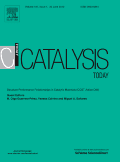
CATALYSIS TODAY
Transforming Ideas into Impactful ResearchCATALYSIS TODAY is an esteemed journal published by Elsevier, specializing in the vibrant field of catalysis and its applications in chemical engineering. With the ISSN 0920-5861 and E-ISSN 1873-4308, it has continually contributed valuable research since its inception in 1987 and is set to maintain its influence through 2025. Hailing from the Netherlands, this journal stands out with a notable Q2 quartile ranking in catalysis and a Q1 ranking in miscellaneous chemistry as of 2023, reflecting its rigorous selection of impactful and innovative studies. Its Scopus rankings further substantiate its excellence, highlighting its position in the 89th percentile of general chemistry and 77th percentile in catalysis. CATALYSIS TODAY aims to disseminate cutting-edge findings, fostering exchange among researchers, professionals, and students in the catalysis community. By presenting high-quality research articles, reviews, and case studies, it plays a pivotal role in advancing knowledge and sparking discussions that drive future developments in the field.

APPLIED CATALYSIS A-GENERAL
Driving Research Excellence in Applied Catalysis.Applied Catalysis A-General is a premier journal published by Elsevier that serves as a vital resource in the fields of catalysis, process chemistry, and technology. Founded in 1991, this esteemed journal has garnered considerable recognition, reflected in its classification in the Q2 quartile for both catalysis and process chemistry in 2023, as well as its notable rankings within the Scopus database, placing it among the top 20 journals in related disciplines. With an ISSN of 0926-860X and an E-ISSN of 1873-3875, the journal provides a platform for researchers and professionals to disseminate cutting-edge research findings, facilitate knowledge transfer, and foster innovation in the field. While not an open-access journal, it remains accessible through institutional subscriptions, ensuring that critical findings reach a broad audience. The journal's objectives include advancing the understanding of catalytic processes and their applications, making it an indispensable tool for those engaged in this dynamic area of study. Applied Catalysis A-General continues to play a vital role in shaping the future of catalysis, contributing to both scientific progression and practical advancements in various industries.

CATALYSIS SURVEYS FROM ASIA
Bridging Theory and Application in Catalysis ScienceCATALYSIS SURVEYS FROM ASIA, published by Springer/Plenum Publishers, is a vital resource in the ever-evolving field of catalysis and chemistry. With a dedication to publishing innovative research and reviews from 2002 to 2024, this journal serves as a platform for the dissemination of significant findings that enhance our understanding of catalytic processes and their applications. Although its current impact factor is not explicitly listed, the journal holds a commendable Q3 ranking in Catalysis and Q2 ranking in Miscellaneous Chemistry within the prestigious Scopus database, indicating its relevance and quality among its peers. Open access options ensure that a broader audience can benefit from the research published, fostering collaboration and advancement in the field. By bridging the gaps between academic research and practical applications, CATALYSIS SURVEYS FROM ASIA is indispensable for researchers, professionals, and students committed to pushing the boundaries of catalytic science and technology.
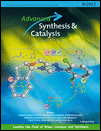
ADVANCED SYNTHESIS & CATALYSIS
Advancing knowledge in organic synthesis and catalysis.ADVANCED SYNTHESIS & CATALYSIS is a prestigious academic journal published by Wiley-VCH Verlag GmbH, based in Germany. This journal, with ISSN 1615-4150 and E-ISSN 1615-4169, plays a pivotal role in the fields of Chemistry and Chemical Engineering, earning commendable rankings such as Q2 in Catalysis and Q1 in Organic Chemistry in 2023. Its high impact factor and recognition—ranking #18 in both Organic Chemistry and Catalysis—further underscore its significance as a platform for groundbreaking research and innovative methodologies. Spanning from 1996 through 2024, ADVANCED SYNTHESIS & CATALYSIS aims to disseminate high-quality, cutting-edge studies related to synthetic processes and catalytic technologies, ensuring accessibility via their open access options. By fostering a vibrant scholarly community, this journal serves as an essential resource for researchers, professionals, and students dedicated to driving advancements in synthetic and catalytic chemistry.

CATALYSIS LETTERS
Illuminating the Path of Catalytic InnovationCATALYSIS LETTERS, published by Springer, is a distinguished journal dedicated to presenting original research and review articles in the field of catalysis and its various applications. Serving the scientific community since 1988, this journal has continuously evolved, providing a platform for the dissemination of innovative findings that advance the understanding and development of catalytic processes. With an esteemed Q3 ranking in Catalysis and a Q2 ranking in miscellaneous Chemistry for 2023, CATALYSIS LETTERS underscores its relevance and impact within these critical fields. Although it does not offer open access, the journal remains a crucial resource for researchers, professionals, and students seeking to stay updated on contemporary advancements and discussions in catalysis. Its Scopus rankings further affirm its contribution to general chemistry and chemical engineering, making it an essential publication for those immersed in this dynamic area of study.

JACS Au
Advancing the frontiers of chemistry research.JACS Au, published by the American Chemical Society, is a premier open access journal dedicated to advancing research in the rapidly evolving fields of analytical chemistry, organic chemistry, and theoretical chemistry. Since its inception in 2021, JACS Au has quickly established itself as a leading platform for high-quality research, reflected in its Q1 rankings across multiple categories for 2023, including Organic Chemistry and Analytical Chemistry. The journal focuses on innovative methodologies and applications that drive the discipline forward, making it an essential resource for researchers, professionals, and students alike. With an impressive Scopus ranking, consistently placing in the top tiers of its categories, and offering a broad range of access options for its readership, JACS Au aims to foster collaboration and disseminate transformative ideas that impact the global scientific community. Exploring diverse topics within chemistry, this journal provides a vital conduit for sharing groundbreaking research and enhancing scientific dialogue.
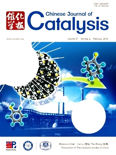
Chinese Journal of Catalysis
Leading the Charge in Cutting-Edge Catalysis ResearchWelcome to the Chinese Journal of Catalysis, a prestigious publication dedicated to advancing the field of catalysis. Published by Elsevier, this journal showcases groundbreaking research and developments in the chemistry of catalysis, emphasizing applications that address global challenges in energy, environment, and sustainability. Since its inception in 1996, the journal has gained recognition, achieving a remarkable impact factor and ranking in the top quartile (Q1) of both Catalysis and Chemistry disciplines as of 2023. With a Scopus ranking of #5 in Catalysis and #14 in General Chemistry, it serves as a vital resource for academia and industry professionals alike. Through its rigorous peer-review process, the journal disseminates high-quality research that not only fosters collaboration among scientists but also encourages innovation. Access to the journal is available through institutional subscriptions, ensuring wide-reaching dissemination of critical findings. Positioned within the vibrant research community in China and beyond, the Chinese Journal of Catalysis plays a pivotal role in shaping the future of catalytic science.

RESEARCH ON CHEMICAL INTERMEDIATES
Illuminating Pathways in Chemical IntermediatesRESEARCH ON CHEMICAL INTERMEDIATES, published by Springer, is a prestigious academic journal that has been contributing to the field of chemistry since 1984. With an ISSN of 0922-6168 and an E-ISSN of 1568-5675, this journal serves as a vital platform for the dissemination of innovative findings and research advancements related to chemical intermediates. Situated in the Netherlands, it has established a commendable reputation, currently ranked in the Q2 category for miscellaneous chemistry and positioned at #131/408 with a 68th percentile in the Scopus rankings. Though it does not operate under an open-access model, the journal plays a crucial role in connecting scientists, researchers, and practitioners to facilitate a better understanding of synthetic methods, characterizations, and applications of various chemical intermediates. Continually publishing high-quality research until its anticipated convergence in 2024, this journal is an essential resource for those looking to expand their knowledge and contribute to the vibrant community of chemical science.
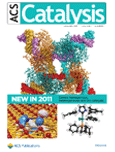
ACS Catalysis
Exploring New Frontiers in Catalytic ScienceACS Catalysis, published by the American Chemical Society, stands as a premier journal in the field of catalysis, offering a vital platform for researchers, professionals, and students focused on advancing the science of catalysis and its applications. With an impressive impact factor placing it in the Q1 category for both Catalysis and Chemistry (miscellaneous), this journal has established itself as a leading source of high-quality research findings, currently ranking #21 out of 408 in General Chemistry and #9 out of 68 in Catalysis according to Scopus. Since its inception in 2011, ACS Catalysis has aimed to publish innovative research that addresses the critical challenges in catalytic processes, advancing our understanding of both fundamental and applied aspects of catalysis. With a commitment to promoting open scientific discourse, it serves a vital role for those interested in the latest methodologies, discoveries, and trends in this essential discipline. Based in Washington, DC, ACS Catalysis continues to uphold the highest standards of scholarship and collaboration within the vibrant community of chemists and engineers worldwide.